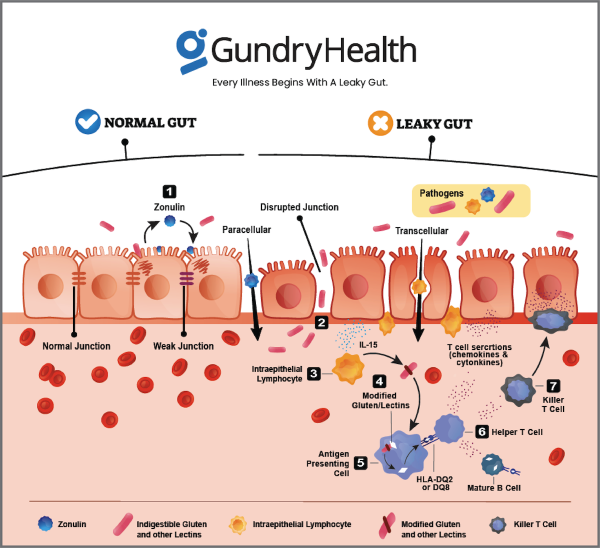Understanding Mast Cell Activation Syndrome (MCAS) – Your Ultimate Guide
What is MCAS?
Mast Cell Activation Syndrome (MCAS) is a complex and relatively newly recognized medical condition that involves abnormal activation and degranulation (release of substances) of mast cells. Mast cells are immune system cells found throughout the body, especially in tissues that come into contact with the external environment, such as the skin, respiratory tract, and digestive system. When activated, mast cells release various substances, including histamine and other mediators, which can lead to a wide range of symptoms.
What are the MCAS Symptoms?
MCAS is characterized by the chronic release of these substances, resulting in unpredictable and varied symptoms that can affect multiple organ systems.
These symptoms can be debilitating and may include:
- Skin Reactions: Hives (urticaria), itching, flushing, and skin swelling.
- Gastrointestinal Symptoms: Abdominal pain, diarrhea, nausea, vomiting, and food intolerances.
- Respiratory Symptoms: Shortness of breath, wheezing, and coughing.
- Cardiovascular Symptoms: Rapid heart rate, low blood pressure, and palpitations.
- Neurological Symptoms: Headaches, brain fog, memory issues, and dizziness.
- Musculoskeletal Symptoms: Joint and muscle pain.
- Generalized Symptoms: Fatigue, malaise, and generalized weakness.
Diagnosing MCAS
Diagnosing MCAS can be complex, and it often requires consultation with a specialist, such as an allergist or immunologist, who has expertise in the condition. A definitive diagnosis may take time and involve ongoing monitoring and testing to confirm the presence of MCAS. It typically involves a combination of clinical evaluation, medical history assessment, laboratory tests, and sometimes specialized testing to confirm the diagnosis.
- Clinical Evaluation: Your healthcare provider will start with a thorough clinical evaluation. They will discuss your medical history, including any symptoms you’ve been experiencing, the duration and frequency of those symptoms, and any potential triggers or exacerbating factors.
- Symptom Assessment: MCAS can cause a wide range of symptoms affecting different organ systems. Your healthcare provider will ask about your symptoms and their impact on your daily life.
- Physical Examination: A physical examination will be conducted to assess any visible signs or physical findings that may be related to MCAS, such as skin reactions (hives or flushing), abdominal tenderness, or swelling.
- Bone Marrow: They may also use bone marrow tests to confirm the diagnosis of MCAS rather than mastocytosis.
There are no universally accepted diagnostic criteria for MCAS, but healthcare providers typically consider established criteria as guidelines. The criteria often include:
- **Recurrent and varied symptoms consistent with mast cell activation in two or more organ systems.
- Improvement of symptoms with medications that inhibit mast cell activity.
- Objective evidence of mast cell activation, such as elevated levels of mast cell mediators (e.g., tryptase) during a symptomatic episode.
- Laboratory Tests: Several laboratory tests may be ordered to aid in the diagnosis of MCAS:
- Tryptase Levels: Tryptase is a mast cell mediator that can be measured in the blood. Elevated levels during a symptomatic episode may suggest MCAS, but normal levels do not rule it out.
- Histamine and Other Mediators: Measurement of other mast cell mediators like histamine, prostaglandin D2, and leukotrienes can provide additional evidence of mast cell activation.
- Complete Blood Count (CBC): An abnormal CBC may be indicative of inflammation or other underlying conditions.
- Allergy Testing: Allergy skin testing or blood tests may be performed to rule out IgE-mediated allergies, which can sometimes mimic MCAS symptoms.
Specialized Testing: In some cases, specialized tests may be conducted to assess mast cell activation more directly. This may include a 24-hour urine collection to measure levels of specific mast cell mediators during a symptomatic period.
Treatment
Treatment for MCAS aims to manage symptoms and prevent mast cell activation. Common treatment strategies may include:
- Antihistamines: These medications can help reduce histamine-related symptoms.
- Avoidance of Triggers: Identifying and avoiding triggers that provoke mast cell activation, such as certain foods or environmental factors.
- Lectins free Diet: Lectins are a type of protein found in many plant foods, such as grains, legumes, nightshades, nuts, seeds, and dairy products. Lectins can cause leaky gut syndrome by binding to your gut lining and breaking down the tight junctions that hold it together. Lectins also resemble some of the proteins found in your thyroid gland, such as thyroglobulin. So when lectins leak into your bloodstream, your immune system may trigger MCAS.
- Mast Cell Stabilizers: Medications like cromolyn sodium can prevent mast cell degranulation.
- Leukotriene Inhibitors: These drugs can help control inflammation and related symptoms.
- Corticosteroids: In severe cases, short-term use of corticosteroids may be prescribed to suppress mast cell activity.
- Lifestyle Modifications: Strategies to reduce stress and improve overall health, which can help reduce the severity and frequency of symptoms.
MCAS is a complex and often underdiagnosed condition. Managing it effectively often requires a multidisciplinary approach, involving allergists, immunologists, and other specialists.
The Gundry Approach
As a leading authority in autoimmune treatments, Dr. Gundry’s approach is based on years of research and clinical experience. Our problem-solution approach is designed to empower you with knowledge about your condition and equip you with the tools to manage it effectively.
We’re committed to providing you with the latest, scientifically-backed information and treatment options. As part of our community, you’ll gain access to a wealth of resources, including expert advice, patient testimonials, and exclusive content, all aimed at supporting your journey to better health.
In conclusion, MCAS is a complex condition that requires a comprehensive, individualized approach to treatment. At Gundry Health, we’re here to guide you every step of the way. If you’ve found this information useful and want to learn more about managing MCAS or other autoimmune conditions, consider joining our mailing list. Let’s embark on this health journey together!
Get personalized care and recommendations for Mast Cell Activation Syndrome (MCAS) from Dr Gundry-Approved program
If you’re looking for more guidance about Mast Cell Activation Syndrome (MCAS) disease than this short list of recommendations, Dr. Gundry’s unique health program is now available to you (without needing an appointment at one of Dr. Gundry’s two, waitlist-only West Coast clinics).
Thanks to the pioneering work of Dr. Gundry and his team at Gundry Health, patient care team trained in Dr. Gundry’s unique holistic methods are now available to help you craft your own personalized Mast Cell Activation Syndrome (MCAS) program.
It’s easy to get started.
Simply click the link below to get more information about personalized Hidradenitis Suppurativa treatment plan options, so you can get expert analysis, diagnostic care, and a plan for tackling Mast Cell Activation Syndrome (MCAS), arthritis, or other autoimmune diseases.
Each patient care team member at Gundry Health is Board Certified and trained in Dr. Gundry’s renowned approach to functional medicine and care.
Get your personal lab data and talk to a U.S. licensed doctor. Click Here.







